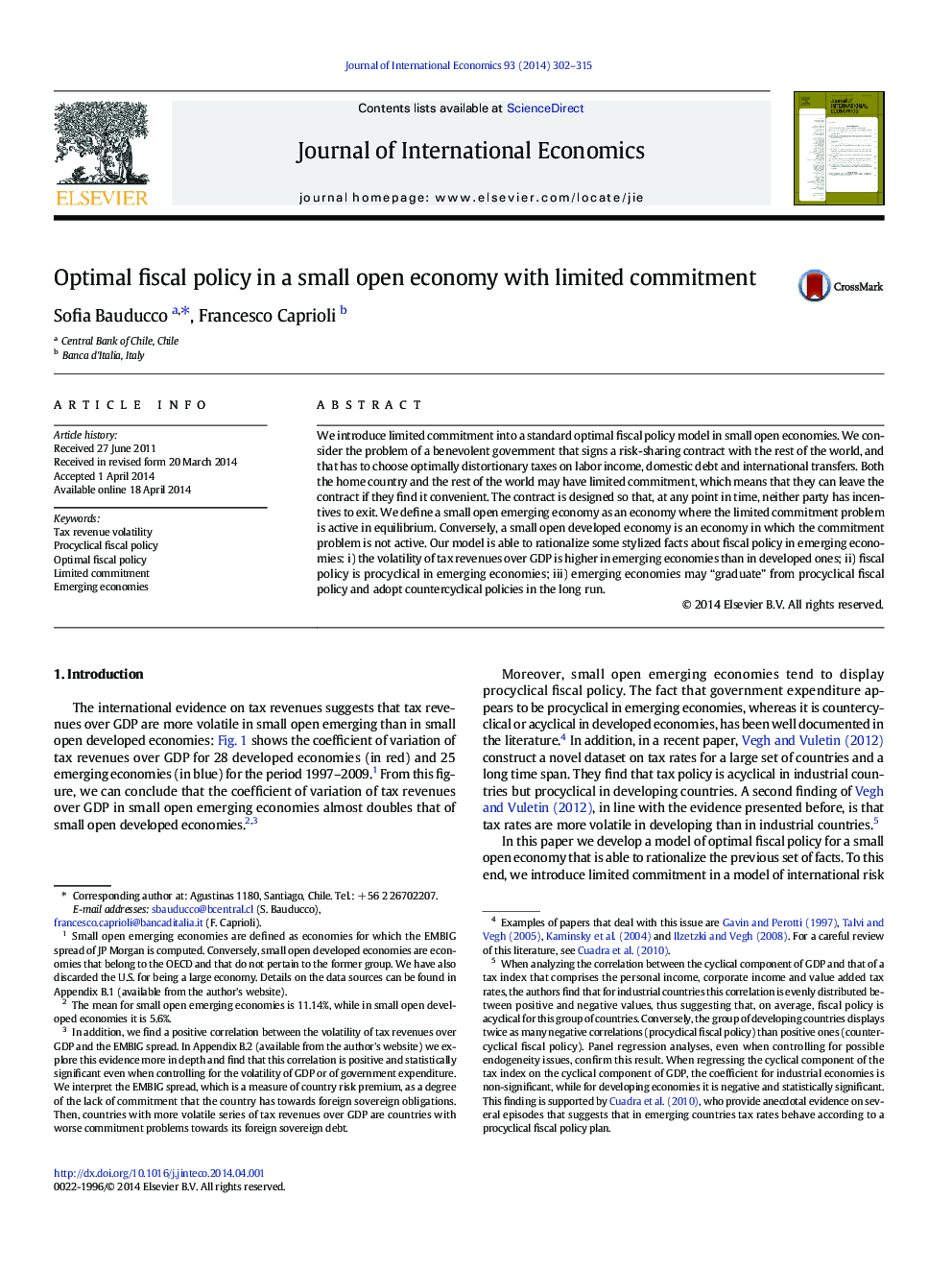| Article ID | Journal | Published Year | Pages | File Type |
|---|---|---|---|---|
| 963053 | Journal of International Economics | 2014 | 14 Pages |
Abstract
We introduce limited commitment into a standard optimal fiscal policy model in small open economies. We consider the problem of a benevolent government that signs a risk-sharing contract with the rest of the world, and that has to choose optimally distortionary taxes on labor income, domestic debt and international transfers. Both the home country and the rest of the world may have limited commitment, which means that they can leave the contract if they find it convenient. The contract is designed so that, at any point in time, neither party has incentives to exit. We define a small open emerging economy as an economy where the limited commitment problem is active in equilibrium. Conversely, a small open developed economy is an economy in which the commitment problem is not active. Our model is able to rationalize some stylized facts about fiscal policy in emerging economies: i) the volatility of tax revenues over GDP is higher in emerging economies than in developed ones; ii) fiscal policy is procyclical in emerging economies; iii) emerging economies may “graduate” from procyclical fiscal policy and adopt countercyclical policies in the long run.
Related Topics
Social Sciences and Humanities
Economics, Econometrics and Finance
Economics and Econometrics
Authors
Sofia Bauducco, Francesco Caprioli,
